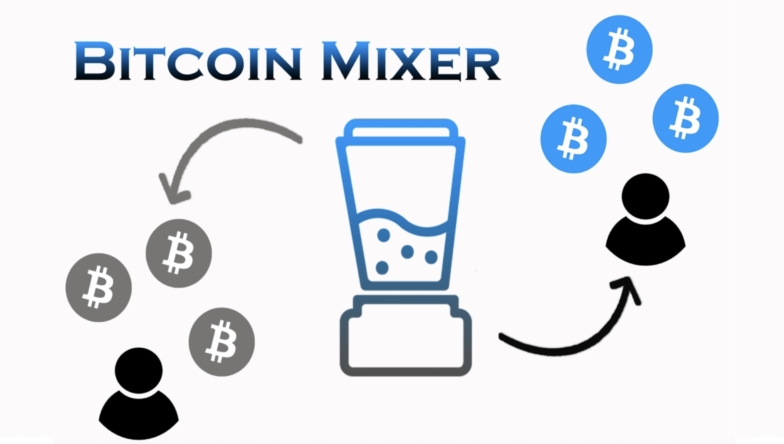
Privacy-focused cryptocurrencies are designed to keep transactions and user data private. Although the cryptocurrency industry may seem from afar as an area where confidential and anonymous transactions are made, it is in fact a very transparent and public industry. Data from decentralized public ledgers stored on the blockchain are typically available to the broader public via blockchain explorers, thus making financial transactions easily tracked.
Privacy coins make transactions and transfers on the blockchain untraceable and anonymous. By restricting anyone from monitoring your activities on the blockchain network, these projects allow you to remain anonymous in your transactions and transfers with your wallet. There are many methods that privacy coins use, and when they combine a few of these methods and integrate them into their network, the users and their transactions on the network become anonymous.
Working Principle of Privacy Cryptos
Privacy cryptos often use the zk-SNARK protocol on their blockchain. This protocol is a form of encryption called Zero-Knowledge Succinct Non-Interactive Argument of Knowledge. We can briefly describe this form of encryption as being able to prove that you know about a blockchain transaction without having to explain what that information is.
In blockchains, every transaction is validated by validators and processed on the network. zk-SNARK allows transactions to be confirmed without sharing information such as amount, sender, and receiver. On the one hand, this concept increases privacy, on the other hand, it eases the load on blockchains and increases scalability. The zk-SNARK concept is used by many major blockchains, not just privacy tokens.

CoinJoin
CoinJoin combines, mixes, and sends the cryptos from the sender address to the recipients in a single transaction. Each token sent reaches a new recipient address that has never been used. The new recipient address and wallet login information are sent to the recipients. This process simply reduces traceability.
Tor
We need an internet connection for transactions with cryptocurrencies. Sometimes, even if we transact with privacy cryptos, the platforms we transact with can monitor our IP address and see which wallet we own and which wallet we transfer crypto to. Most blockchains use Tor onion routing to hide our IP address with layers of encryption.
Restrictions on Privacy Cryptos
It is a known fact that privacy cryptos are frequently used for criminal activities. While it is everyone’s personal freedom to transfer money anonymously, there are many criminals who abuse it. The vast majority of ransomware attacks and dark web platforms use XMR as a means of payment. Of course, this does not mean that privacy tokens are only used by malicious people or criminals.
Many countries have imposed restrictions on the use of privacy coins. These restrictions have reduced the trading volumes of cryptos serving in this area to very low levels. The US did not ban, but also did not approve, the use of privacy coins. Most Asian countries have banned the use of these coins. Privacy coins continue to be traded on cryptocurrency exchanges with requirements such as KYC and AML.
Most Popular Privacy Coins
There are more than 80 cryptocurrencies on the market, whose main focus is privacy. Let’s talk about the most popular of them and what they do.

Monero (XMR)
Monero is a privacy coin that makes it very difficult for people to track transactions on the network. Launched in 2014, Monero runs on a decentralized blockchain ledger. All transactions on the network, including which wallet sends to whom, when and how much crypto, is hidden by Monero’s cryptographic techniques.
Transactions made in Monero can be viewed, but the network hides which wallet the funds came from and to which wallet they were sent. Three different technologies are used to ensure confidentiality in the network. Ring signature technology is a cryptographic signature technology that contains at least one signature from each real person, but which people in the group are unknown. The second technology is ringCT technology, which is used to hide the amount sent in blockchain transactions. The other technology is the secret address technology, which creates a one-time user address in every transaction. We have mentioned these technologies above.

Zcash (ZEC)
Zcash is a privacy crypto that aims to anonymize digital payments. The Zcash mainnet uses an encryption tool to keep transactions private. Setting out to be a better privacy crypto alternative than Monero, Zcash was launched in October 2016. ZEC attracted a lot of attention and demand when it was launched, raising as much as $3190 but fell to $30 after just 4 months.
Zcash has a protocol that encrypts transaction information using zero-knowledge proof. This protocol, which enables transactions to be verified without seeing details of sent amount, sender and recipient wallet addresses, increased its efficiency with the Sapling upgrade enabled in October 2018.

Decred (DCR)
Decred is a privacy crypto created by modifying Bitcoin blockchain codes just like Monero. Having a community-based governance process, Decred works with both PoW and PoS consensus mechanisms at the same time. Decred was launched in early 2016. DCRDEX was developed in 2020 so that users can trade more easily on the network.
Decred, using an interface called Politeia proposal system, allows all users in the community to submit proposals and vote anonymously. A security and efficiency-oriented algorithm called BLAKE-256 is used in the Decred blockchain. Decred has a blockchain explorer, but user identities are kept confidential as user privacy is prioritized on the network.

Horizen (ZEN)
Horizen is a platform that enables building private and public blockchains. Allowing users and companies to develop and publish dApps, conduct daily transactions and send encrypted messages, Horizen provides users with discretionary privacy through its protected transactions. Horizen uses zk-SNARK and end-to-end zero-knowledge encryption to securely send and store data, messages, and coins. The consensus mechanism of the network is PoW, while the mining algorithm is Equihash.
Released in May 2017, ZEN is a hard fork of ZClassic that emerged as a result of the Zcash fork. Like Zcash, Horizen has been a blockchain that prioritizes a high level of privacy. There are two dApps called Sphere and ZenChat that can be used for private messaging on the network. Horizen Academy, Horizen Early Adopter Program, and Horizen Developer Enviroment are other initiatives of the platform.

Secret (SCRT)
Secret is a blockchain network based on the Cosmos SDK. Secret is a more innovative project than other privacy-focused projects. This blockchain, which receives more frequent updates and keeps up with the trends, is the only one among the projects on the list to support NFTs.
The blockchain, which runs privacy-focused smart contracts, has an inter-chain bridge called Secret Bridge. Thanks to this bridge, it is possible to interact with BEP-20 and ERC-20-based tokens. Trading can be done simply on SecretSwap, which works as an AMM and DEX on the network. Stashh is the blockchain’s NFT marketplace. Users will be able to buy and sell NFTs anonymously on Stashh.
Private tokens on the network use the Secret blockchain-specific SNIP-20 token standard. For NFTs, the SNIP-721 standard is used. The privacy features of Secret Network’s smart contracts also cover NFTs. NFTs have hidden metadata, their owners are private, and only those who have been granted access can view the content. Secret is the best network, especially for NSFW content.



